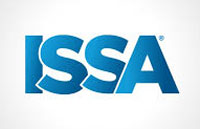
 During October this year, ISSA released a new standard industry professionals can use when working in or with kindergarten to year 12 schools to promote a cleaner and healthier indoor environment to benefit children’s learning experiences.
During October this year, ISSA released a new standard industry professionals can use when working in or with kindergarten to year 12 schools to promote a cleaner and healthier indoor environment to benefit children’s learning experiences.
The Standard establishes a framework to help schools objectively assess the effectiveness of the cleaning process at their facilities, thereby contributing to the quality of the indoor environment for the benefit of students and staff. Based on the philosophy of ‘Clean, Measure, Monitor’ and an emphasis on high-performance cleaning, the Clean Standard: K-12 focuses on:
- The desired levels of cleanliness that can reasonably be achieved;
- Recommended monitoring and inspection procedures to measure the effectiveness of cleaning;
- How to use the measurement and inspection results to assess and improve cleaning processes and products, ultimately resulting in a clean, healthy and safe learning environment.
The ISSA Clean Standard: K-12 relies upon both objective and subjective components in setting forth a methodology for measuring cleaning effectiveness. The Standard specifically provides ‘ranges of clean’ based on ATP testing (process of rapidly measuring actively growing microorganisms through detection of adenosine triphosphate), as well as sample audit forms.
The inclusion of ATP limits adds a quantitative to the determination, while the audits assist with a traditional ‘sight, smell, and touch’ perspective. The ultimate goal is to ensure that schools are in a condition that is clean, safe and healthy for students and staff. More importantly, the ISSA Clean Standard calls for corrective actions in the event the school is not achieving the desired level of cleaning effectiveness.
“ISSA is pleased to launch yet another tool that supports our overall goal of changing the way the world views cleaning. In the face of difficult budget cuts and a misunderstanding of the importance cleaning has in the success of student education, our members and the schools they work with can use science to help make the case for proper cleaning,” said ISSA executive director John Garfinkel.